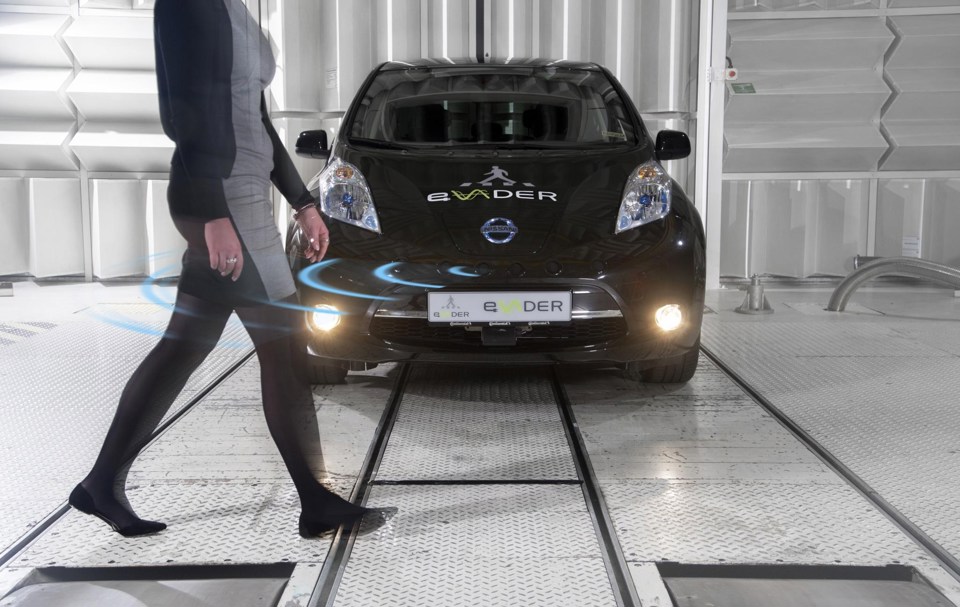Nissan has taken a leading role in the European Commission-led project, eVader, to create an audible pedestrian alert system for electric vehicles.
In partnership with 10 other consortium members, the manufacturerhas collaborated in the creation of a potential next-generation pedestrian alert technology which produces effective and targetable audible cues to alert pedestrians and other vulnerable road users to the presence of a nearby EV, whilst having minimal impact on noise pollution levels.
As developer of the approaching vehicle sound for pedestrians (VSP), fitted as standard equipment to all Nissan EVs, the manufacturer has made this area of research a priority.
David Quinn, Nissan’s e-Vadar project leader said: “Pedestrian safety is of the utmost importance to Nissan, which is why we already have a pedestrian alert installed in our EVs as a preventative measure.
"Our objective has been to find an optimum balance between ensuring the cars are detectable, whilst retaining the reduction in noise pollution, which is one of the great benefits that our EVs offer.”
As a leading partner in the eVader project, which took three years to successfully complete, Nissan drew on its EV expertise to integrate the range of technologies provided by other consortium members and Nissan into the demonstration vehicle, and worked to ensure that the sounds created were clearly audible, while having as little impact as possible on ambient noise levels.
The sound created not only had to be directionally beamed at targeted pedestrians, it also had to keep annoyance levels to a minimum. Siren-like noises were ruled out at an early stage, as they were found to be irritating, loud and, in some cases, emotionally upsetting to other road users.
The final version of the system features a camera built into the windscreen, which is programmed to recognise pedestrians, cyclists and other road users.
On detection of a road user, six loudspeakers directionally beam sound at the target to alert them of the presence of the EV.
The sound is up to five decibels lower than the sound of a conventional petrol or diesel engine vehicle.
Nissan built this system into a Nissan Leaf for real-life trials, and the vehicle was used to showcase the completed alert system at a concluding event in Barcelona in December 2014.
The research and results collated from this project form an invaluable reference material for future research into this area, and it is likely that it will be utilised to shape future EU legislation on EV pedestrian alert sounds.



















Login to comment
Comments
No comments have been made yet.